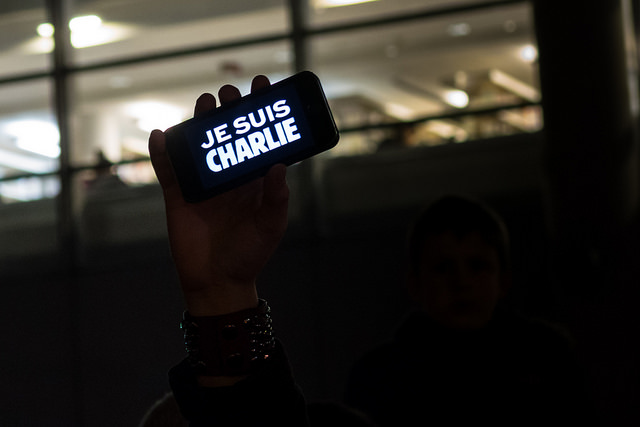Wednesday’s massacre of eight journalists, five of whom were political cartoonists, at the French satirical weekly Charlie Hebdo unleashed a torrent of “We are Charlie Hebdo” editorials across the world.
Newspapers fell all over themselves in an effort to demonstrate solidarity with the slain cartoonists — but they had a concern. Was it enough to simply describe Charlie Hebdo’s controversial cartoons or did they have to reprint examples of the magazine’s work?
Some reprinted the cartoons, others did not, arguing that reprinting an offensive cartoon would be disrespectful to Muslims.
In both cases publishers reassured themselves (and us) that when it came to being fearless purveyors of the truth, they are doing a fine job.
But are they?
Political satire
Effective political satire highlights hypocrisy and the abuse of power. It is sharp, insightful and humourous. Anthropologist Margaret Mead says it matters because making fun of people in authority is the difference between democracy and tyranny.
Political cartoons are the most powerful forms of political satire because they’re instantly accessible — and this makes them dangerous.
In 1829 the French interior minister Francois-Regis de la Bourdonnaye said political cartoons “act immediately upon the imagination of the people, like a book which is read with the speed of light; if it wounds modesty or public decency, the damage is rapid and irremediable.”
The only way to rein in their magical power was to make them illegal.
Over time the laws became less repressive and mainstream political cartoonists were free to express their views on pressing political problems however they chose.
So why don’t they exercise this freedom more effectively in Alberta?
Political cartoons in Alberta
Our trust in government has been under siege for decades. The arrival of Jim Prentice on the scene made things worse, not better. And yet if you scanned the political cartoons in Alberta’s major newspapers you’d never know that democracy is seriously off kilter in this province.
During Premier Prentice’s first few months in power he violated the public trust at least three times:
- Prentice allowed Mr. Dirks, his unelected education minister, to engage in electioneering by giving voters in his riding first dibs on school portables despite the fact they were seventh on the priority list. The Ethics Commissioner said Albertans would be hard-pressed to view Mr. Dirks’s actions “as honourable, respectful and ethical”.
- Prentice proposed legislation (Bill 10) that forced students to go to court if a school board refused to let them form gay-straight alliances. In response to public pressure he removed the requirement of going to court; instead students would be required to appear before Mr Dirks, the education minister — the one we’re hard-pressed to view as honourable, respectful and ethical.
- Prentice made a mockery of the democratic process that relies on the Official Opposition to hold the government to account by attempting to take over the entire Wildrose Opposition while the Legislature was in session. Given his rationale — the reunification of the two Conservative parties — it appears he used government resources, notably his Chief of Staff, to conduct PC party business.
What would Charlie Hebdo do?
Given Charlie Hebdo’s penchant for incendiary graphics one suspects that Albertans would have seen cartoons of the education minister turning his back on a sardine tin packed to the gills (pun, sorry) with children and overwrought teachers while he slipped shiny new portables into his voters’ pockets, and drawings of students begging a glowering education minister for permission to hang out with their gay and straight friends on school property; and caricatures of Jim Prentice and Danielle Smith leading a lamb called Democracy to the abattoir.
The best that Alberta cartoonists could offer was a car labeled Wildrose rear-ending a semi labelled Alberta Tories, a broken Wildrose Christmas ornament and Prentice clipping the stem off a wild rose.
Alberta’s political cartoonists are not as inflammatory as Charlie Hebdo (and perhaps they shouldn’t be) but unless they’re prepared to reflect Alberta’s one-party petro state in a wicked satirical mirror they’re not Charlie Hebdo, they’re Charlie Brown and their cartoons should be moved back to the comics page where they belong.
Photo: Flickr/bibiweb



